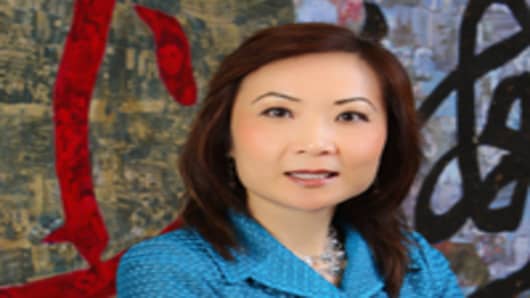I think what gives me a unique advantage is that I have among the best access to leaders in both the Chinese and foreign business communities. I established the Hands-on China series for J.P. Morgan, which brings together a network of CEOs, leading lights in various industries, multinational executives, consultants, etc. It's like a large think-tank for our global clients.
Q: Do you think markets are becoming increasingly risky for individual investors?
A: Yes - as people find more ways to make more specialized bets on the market, the average investor is confronted with a growing myriad of products. Unfortunately, risk awareness and control hasn't and will likely never catch up with the desire for profit: individual investors will have to be increasingly prudent going forward, in terms of gaining exposure to new and complex products.
Q: What were some of the key lessons learnt during the Asian Financial Crisis?
A: With the world now increasing connected, risk is no longer an isolated phenomenon. It's quite difficult for anyone to anticipate a crisis when the causes of past crises are still debated in retrospect. However, the cornerstone of any investment principle is to be as emotionally removed as possible, refraining from being over-buoyant, and also from being overly risk-averse when you do think the markets have nearly bottomed out.
Q: Do you see China as a threat or a catalyst to growth in Asia/the world?
A: I think the notion of China being a threat to the development of any part of the world is a misconception that arose from the failure to see the more comprehensive and broader picture. China enjoys a near absolute advantage in certain types of manufacturing, but is lacking in many services and higher-end production capabilities. This misalignment with the strenghts of more developed countries gives rise to many areas of comparative advantage.
Even when considered with countries that are similar to China, for example, Brazil, the level of redundancy between the outputs of the two countries are low and their co-existence lends itself to opportunities and higher efficiencies. There is no doubt that the rapid expansion of China has caused some disruptions, but I believe that in the wake of such undulations, the world will come to the realization that the aggregate effect of China would have expedited global economic development, rather than to have hindered it.
Q: Who has been the biggest influence in your life?
A: My parents, who taught me the value of a good education and encouraged me to further my studies abroad. When I was preparing to go to Harvard, China was very much a closed country and I never imagined having the role that I do today. I feel equally comfortable in both the Chinese culture and the Western culture, equally comfortable in the two languages. The experience of studying in China and in the US really molded me into who I am today.
Jing Ulrich, Managing Director & Chairman, China Equities & Commodities at J.P. Morgan, is a frequent guest on CNBC. Ulrich was named as one of Forbes' 20 Youngest Power Women in 2010.
_______________
Watch Ulrich's previous interviews on CNBC:
- China Can Overcome Inflation Problem
- Fears About China's Rare Earth Exports
- Counting on China's Growing Wealth


